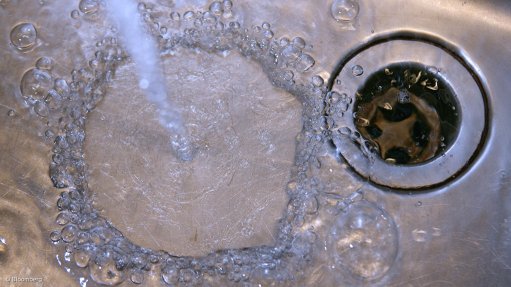
Photo by: Bloomberg
The Department of Water and Sanitation (DWS) is set to embark on its yearly water month activities to highlight the importance of water in the livelihoods of the public and the economy.
The discussions on water issues will be streamlined during National Water Week, to be held from March 18 to 24, when the department will have various activities across the country to mark the United Nations’ (UN’s) World Water Day on March 22.
The DWS says this year’s water month campaign is held under the theme “leaving no one behind; water for all” and is set to highlight government’s obligation to ensure that all citizens have access to clean water.
“National Water Week and World Water Day come at an opportune time during Human Rights Month, because water is a basic right that everyone must have access to,” the department states.
The theme for this year is in line with the National Water and Sanitation Master Plan – a guiding framework towards the attainment of service delivery of the basic services of water and sanitation by 2030 and beyond.
The successful implementation of the master plan will also fulfill government’s National Development Vision 2030, as well as the UN Sustainable Development Goals target of water and sanitation for all by 2030. This will be done through collaborative water sector investment planning for the development of water resources.
The master plan is based on five key objectives that define the “new normal” for water and sanitation, and seeks to achieve resilient and fit-for-use water supply, universal water and sanitation provision, equitable sharing and allocation of water resources, effective infrastructure management, operation and maintenance, and improved raw water quality management.
Water security is one of the biggest challenges facing South Africa and the world, especially the developing world in the current century, the DWS notes.
The department added that water security will further be threatened as supply decreases, owing to negative impacts on yield, arising from climate change, degradation of wetlands and water resources, siltation of dams, water losses and escalating demand, owing to population and economic growth, urbanisation, inefficient use and changing lifestyles.
South Africa currently consumes more water per capita – at about 237 ℓ/d – than the world average – at about 173 ℓ/d.
Additionally, the country has a semi-arid climate, with an average yearly rainfall of 465 mm, compared with the global average of 860 mm. As a result, South Africa’s water resources are scarce and limited.